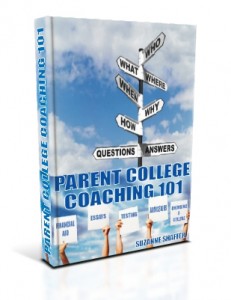 Within your college application, your personal statement is your one opportunity for the admissions officer to “meet you”, to visualize the person behind the numbers. While no essay can save an unqualified application, an outstanding essay can push an otherwise mediocre application into the “yes” pile.
Within your college application, your personal statement is your one opportunity for the admissions officer to “meet you”, to visualize the person behind the numbers. While no essay can save an unqualified application, an outstanding essay can push an otherwise mediocre application into the “yes” pile.
However, writing a good application essay is hard. Many students write essays that are too cliché or too shallow; others write essays that are impersonal and uninformative; some are even unfortunate enough to write essays that cause their own rejection.
This isn’t surprising. The application essay is drastically different from the typical high school assignment—deeply personal, rather than merely informative.
Well, let me give you a glimpse through the eyes of an admissions officer. Working for the admissions office of a university with single-digit admission rates, I have reviewed numerous applications and “graded” a wide variety of application essays. Here are five things a college admissions officer looks for:
1. Can the applicant write?
The first thing the application essay does is to prove that you can write well. In college, you are going to write, write, write and write—and the application essay allows the admission officer to judge whether you will be able to cope.
On a structural level, your essay should be well organized and coherent. It should have a well-thought-out idea development and be properly paragraphed.
Your writing should be engaging and expressive. A big part of this depends on your personal style, but in general, you should use the active voice and vary your sentence structures. A note though: essays on both ends of the extreme usually don’t work—essays which are too gimmicky and stylized, or too academic, rigid and formal.
Lastly, of course, your essay should be free of grammar and spelling mistakes.
2. What does the essay say about the applicant?
This seems like an obvious point, but many applicants end up writing essays that do not actually shed much light on themselves. No matter how beautiful your descriptions are, or how emotionally moving your content is, if you do not relate these thoughts back to yourself as an individual, your essay will be ineffective.
A strong application essay allows us to visualize the applicant behind the numbers, and to know exactly what type of person you are. The essay should make us feel that we have gotten to know you on a personal level, as if we have met you face-to-face.
3. Are there deep, personal reflections?
To allow the admissions officer to get to know you, your writing needs to include reflections that are deep and personal. Without these reflections, an essay will seem shallow or even generic. Conversely, mature reflections will bring personality and depth to a topic that might seem commonplace at first (for example, community service).
To put it another way, the most important thing in the essay is not the “what”, but the “why”. We have the “what” from the list of your extracurriculars, scores and awards. We now want to know the “why”, the motivations that drive you.
This is also why it is a bad idea to try to cover too much in your essay. To put it yet another way, while the other sections of your application focuses on describing the breadth of your activities, in your personal statement, you should aim to reveal depth in one area.
4. What will the applicant bring to the community?
So what should you highlight about yourself? Well, the admission officer wants to discover what you can contribute to the college. If your application allows the reader to visualize you as an active, contributing and successful member of the community, you are in.
This does not mean that you need to be mind-blowingly unique. The qualities you can most effectively highlight are the genuine ones. A good essay requires a good deal of introspection, to arrive at a keen self-knowledge of what your strong points are, and how to best portray them.
On the flip side, you should avoid topics (and writing tone) that portrays you in a negative light. Be careful of writing about failures that highlight negative characteristics. Stay away from more controversial and potentially offensive topics. Avoid sounding naïve, lacking in self-awareness, or patronizing (a major problem, especially in essays about community service).
5. Do the qualities represented in the essay resonate with the rest of the application?
The advice goes that you should not rehash the rest of your application in your essay. For example, if you have already included multiple debate activities and awards, your essay should not be about debate.
The caveat to this is that while the specific activities should vary, there should be a consistent portrayal of personal qualities. If your essay represents you as a boundary-pushing activist, but the other parts of your application portrays you as respectful and soft-spoken, flags will be raised.
An application is a lens into a single person, so consistency is important. You should thus consider your application holistically, and put some thought into how you want to represent yourself, and what characteristics you want to highlight. Good luck!
_____________________________
Today’s Guest Blogger
David works for the admission office of a university with a single-digit acceptance rate. In his spare time, he provides expert coaching to students on their college application essays. Visit his website, www.essayscoach.com to learn more about how to write outstanding essays.




 The college application season is now in full swing and if you listen closely enough, you might be able to make out the tap-tapping of millions of seniors across the globe writing their application essays. If you happen to be one of those students or a parent of one, I’d like to introduce you to Edswell, an application essay management tool that makes the whole process a lot easier.
The college application season is now in full swing and if you listen closely enough, you might be able to make out the tap-tapping of millions of seniors across the globe writing their application essays. If you happen to be one of those students or a parent of one, I’d like to introduce you to Edswell, an application essay management tool that makes the whole process a lot easier.





